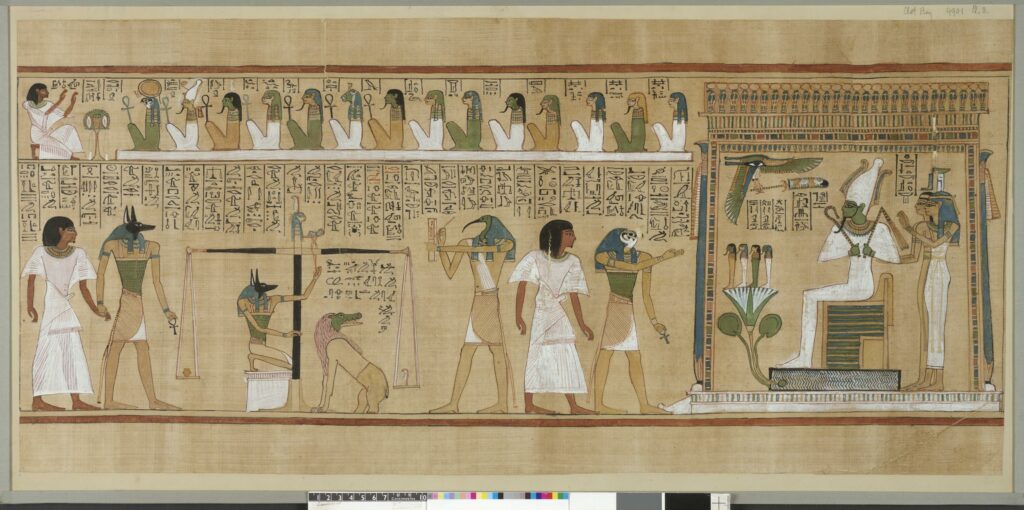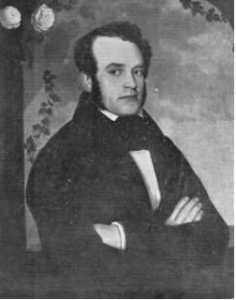Gravedigger tune
(Poet's title: Totengräber-Weise)
Set by Schubert:
D 869
[1826]
Nicht so düster und so bleich,
Schläfer in der Truhe,
Wohnest nun im stillen Reich
Gottgeweihter Ruhe!
Wird der Leib des Wurmes Raub
Und ein Spiel den Winden –
Muss das Herz selbst noch als Staub
Leben und empfinden.
Jetzt beginnet dein Gericht;
Gleichend deinem Leben
Werden dunkel oder licht
Träume dich umschweben.
Jeder Laut, der dich verklagt
Als den Quell der Schmerzen,
Wird ein scharfer Dolch und nagt
Sich zu deinem Herzen.
Doch der Liebe Tränentau,
Der dein Grab besprühet,
Färbt sich an des Himmels Blau,
Knospet auf und blühet.
Im Gesange lebt der Held,
Und zu seinem Ruhme
Brennet hoch im Sternenfeld
Eine Feuerblume.
Schlafe bis der Engel ruft,
Bis Posaunen klingen,
Und die Leiber sich der Gruft
Jugendlich entschwingen!
Not so gloomy and so pale,
Sleeper, in your chest,
You are now living in that quiet kingdom
Of divinely blessed rest!
Although the body is becoming prey for worms
And a plaything for the winds –
The heart, even as dust, has to
Live and experience emotions.
Your judgement is now beginning –
Similar to your life,
Whether they be dark or light,
Dreams are going to hover around you.
Every sound that accuses you
Of being a source of pain
Will become a sharp dagger and stab
You in the heart.
But love’s teary dew
Which is spraying your grave
Will be coloured by the blue of the sky,
It will sprout buds and blossom.
The hero lives in song
And to his glory,
Burning high in the field of stars,
Is a flower of fire.
Sleep until the angel calls,
Until trombones sound,
And the bodies in the grave
Rise up as they are made young again.
All translations into English that appear on this website, unless otherwise stated, are by Malcolm Wren. You are free to use them on condition that you acknowledge Malcolm Wren as the translator and schubertsong.uk as the source. Unless otherwise stated, the comments and essays that appear after the texts and translations are by Malcolm Wren and are © Copyright.
☙
Themes and images in this text:
Angels Buds Coffins Dew Dreams Fire Flowers Graves and burials Hearts Heaven, the sky Pain Rejuvenation Rest Resurrection Stars Swords and daggers Tears and crying Trombones Trumpets Wind Workers and working songs Worms
This gravedigger has taken it upon himself to play the role of host welcoming a new guest to his hotel (as in Müller’s Das Wirtshaus, D 911/21). He is explaining what a night’s sleep will be like here, but assures him that he will rise refreshed in the morning.
His account of what is going to happen is not dissimilar to the inscriptions in Egyptian tombs with extracts from ‘The Book of the Dead’, though the purpose is clearly different. The gravedigger cannot offer any magical incantations to help the deceased along the journey. In fact his words are probably intended much more for the living, to warn us to get ready now for what is to come.
We have to accept that our body will decompose. However, our ‘heart’ (which must here mean something like ‘spirit’, ‘soul’ or ‘identity’) lives on and experiences ‘dreams’. Some of these will be ‘dark’, in particular when we remember how we have hurt others. We will feel the ‘prick of conscience’, like a dagger stabbing the heart. This is what it is to be ‘judged’ (the Egyptians used similar cardiac imagery in connection with the process of judgement).

There is nothing about identifying or remembering anything good that the deceased person has done. The only source of hope comes from the tears of bereaved friends that water the grave and allow the dead seed to sprout and eventually blossom. The memorial to the ‘hero’ (burning as a star) consists of the songs that they sing in his honour.
The gravedigger / innkeeper ends by hoping that the guest sleeps well and promises that he will be given an alarm call in the morning. In English this is referred to as ‘the last trumpet’, though German speakers refer to the last trombone (this goes back to Luther’s translation of Revelation chapter 8). He will awake refreshed and rejuvenated.
☙
Original Spelling Todtengräber-Weise Nicht so düster und so bleich Schläfer in der Truhe, Wohnest nun im stillen Reich Gottgeweihter Ruhe! Wird der Leib des Wurmes Raub Und ein Spiel den Winden - Muß das Herz selbst noch als Staub, Leben und empfinden. Jetzt beginnet dein Gericht: Gleichend deinem Leben Werden dunkel oder licht Träume dich umschweben. Jeder Laut, der dich verklagt Als den Quell der Schmerzen, Wird ein scharfer Dolch und nagt Sich zu deinem Herzen. Doch der Liebe Thränenthau, Der dein Grab besprühet: Färbt sich an des Himmels Blau, Knospet auf und blühet. Im Gesange lebt der Held, Und zu seinem Ruhme Brennet hoch im Sternenfeld Eine Feuerblume. Schlafe bis der Engel ruft Bis Posaunen klingen, Und die Leiber sich der Gruft Jugendlich entschwingen!
Confirmed by Peter Rastl with, Dichtungen vom Freyherrn Franz von Schlechta. Erster Band. Wien, 1824. Im v. Hirschfeld’schen Verlage, pages 14-15.
Note: The textual changes inserted into Schubert’s manuscript by a third party (possibly Schlechta himself) for the first edition (Diabelli 1832) have not been retained in Neue Schubert Gesamtausgabe.
To see an early edition of the text, go to page 14 [30 von 290] here: http://digital.onb.ac.at/OnbViewer/viewer.faces?doc=ABO_%2BZ16264200X


